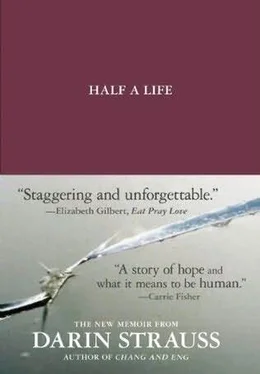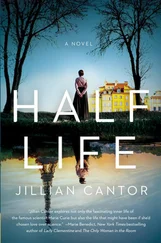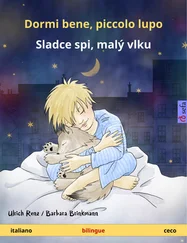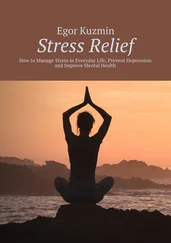5. I should disclose here: I’d started going to therapy several years before this — though not (I really don’t think) as a response to the accident. I’d gone with pretty boilerplate stuff: your typical mid-thirties complaints. Trying to swim with the tide of your life’s important associations. Squaring ambition with reality. Just getting one’s psychic shit together. My therapist said how does this make you feel and empowerment and a process of healing . I said, well, so you think I’m okay? She said patience, patience; that’s all the time we have for this week . But any knowledge was impossible without my having stared down the accident. And so my therapy attempts had always been near-misses, fizz-outs if not outright failures.
I don’t want to say that in any Proustian sense I’d consecrated my life. You don’t create a personal bible by ripping out all the myths.
Here is what I’ve come up with:
Because I was alive in a certain place, Celine Zilke isn’t anymore. That’s all this was. Statistics and figures, mathematical anomalies; sour numbers on America’s balance sheet. Forty thousand die on U.S. roads every year. (And with almost every fatal accident, someone walks away suspecting he’s put on the executioner’s hood.) But it was me and it was Celine. She was someone I happened to, someone who happened to me.
I learned to see the accident the way a painter sees a picture — up close, dots of circumstance; step away, an image, stuck and clear. When Celine wrote, “Today I realized that I am going to die,” there’s a good chance she meant only that she’d come to understand that she would — in the future, when all of us are quietly smudged from the blackboard, one by one — die someday .
After I came to accept that, there was just no way not to follow these crumbs of thought to their destination: I can’t know — not for sure — if I may have been able to avoid killing Celine Zilke.
We can try our human best at the crucial moment, and it might not be good enough. That I do know.
The girl I killed: never before had I eased up and stood next to those hard words.
The knowledge that shadowed me with its wing — that the only certainty I have is that I did the best I could when she took her inexplicable turn across two lanes — would have painted the younger version of me with guilt. My journal-entry assumptions were meaningless. I’m typing this right now in a library, and there is a calm to my breathing; everything is more or less okay, brainwise. My mind isn’t sounding out sharps and alarms: fraudulence, guilt. But I keep spacing, keep looking to Reference, where the lady shushes a hyper young girl, and I begin to cry. I am not weeping, not really. And I think it’s from something like relief.
Celine Zilke’s life ended in front of me. But I can’t access her. I know nothing important, nothing real about Celine except how she died, and that I’m part of the reason she died.
I just read the policeman Paul Vitucci’s Newsday quote again — for the first time in decades — and it came like a gift from the past. I’d forgotten the completeness of the absolution. It was clear and direct and full enough to seem an express message to this future me, a dispatch meant to comfort and assure.
I remember Officer Vitucci once told me if I’d swerved the car differently that May 1988 morning, I might have flipped it. Say that had happened. Say Celine had lived and I hadn’t; what of herself would she need to put to the side, in trying to think about me: the stranger who had managed somehow to swerve away from her bike, and who had died because of it?
I used to think I’d like her to not remember me at all. Not to have to contend — at eighteen, at thirty-five, at all life’s cozy moments — with a stranger. I’d like her to be spared the feeling that she’d traveled for two decades with a ghost.
But now I don’t know. I don’t know if that would be fair, or even best for her. And not, I don’t think, because I’d want the spirit of who I was to be kept quote unquote alive in her. It’s more that if she’d been too comfortable with my dying, she wouldn’t have remained a fully live person herself.
It’s not that I outran Celine, or that half of my life. It’s the reverse. The accident taught me this.
Things don’t go away. They become you. There is no end, as T.S. Eliot somewhere says, but addition: the trailing consequence of further days and hours. No freedom from the past, or from the future.
But we keep making our way, as we have to. We’re all pretty much able to deal even with the worst that life can fire at us, if we simply admit that it is very difficult. I think that’s the whole of the answer. We make our way, and effort and time give us cushion and dignity. And as we age, we’re riding higher in the saddle, seeing more terrain.
So it’s an epiphany after all. You have it in your hand the whole time.
Whether Celine had been intent on dying that sunny morning or not — this has, in the end, little to do with me. Of course, the new element of doubt effects the wide and somber assurance of those reaction-time numbers I’d needed in college. Suicide is suicide, accident is accident, and ambiguity lives in the gap between. But suddenly — that is to say, after half a life, plus a few rocky months at the keyboard — I finally get it. And it’s mountain-stream clear: This tragedy isn’t mine to own. It’s hers.
What I hated in myself, for more than half a life now, was feeling lucky for being alive. For not being blamed. Merely for being allowed to continue, when Celine wasn’t. How could anyone be unhappy about that? But how could a person with my story agree to feel relieved and blessed? The accident has formed me. I can no more discard it than I can discard having grown into adulthood. But I am grown now. And because I am, I can say no. I can say no to the hectoring, blistery hurt. I can say to myself: It’s all right to take in the winter beach and grass smells, and crackle back across the sand of the road, and smile at the faces you love.
Every book is collaborative. Or that’s what they say. With this book, the truism felt more fully true than it had before. Which is surprising, because what you hold in your hands is an acutely personal story. But Half a Life was an out-and-out team effort.
My thanks first to Ira Glass and Jane Feltes at This American Life and Michael Rapkin at GQ , who edited excerpts of the book skillfully, and with steep compassion. But the thanksgiving doesn’t stop there. My wife, Susannah Meadows, and my friend David Lipsky did Lishgrade work on the manuscript. I’m forever grateful.
At McSweeney’s, Eli Horowitz was patient and sharp and loving and he improved the book hugely. Dave Eggers was generous, passionate, hands-on — easily the most hands-on editor any writer could ever want. He cared a shocking amount (down to the last disputed semi-colon), and that was very humbling.
I owe Dave and Eli another thanks. They were willing to take a chance on this book as it had been pitched to them; I said I saw Half a Life as a forty- or fifty-page oddity. And Eli said, “Whatever it needs to be.”
Sarah Chalfant and Scott Moyers at the Wylie Agency — The Amazings — never pressured me to make the book any longer, or anything other than what I wanted to make it. That it ended up coming in at almost four times what I’d planned is a testament to how freely I was allowed to explore.
There were and are also that day’s carloads of unfamiliar eyewitnesses, the police officer Paul Vitucci, my friends and passengers David Wohl and Mike and Jeff Newman, my schoolmates Eric Salat and Frank Santoro — and so many people at North Shore High in 1988. My primary mission here has been to make the words of this book an adequate expression of my gratitude.
Читать дальше









